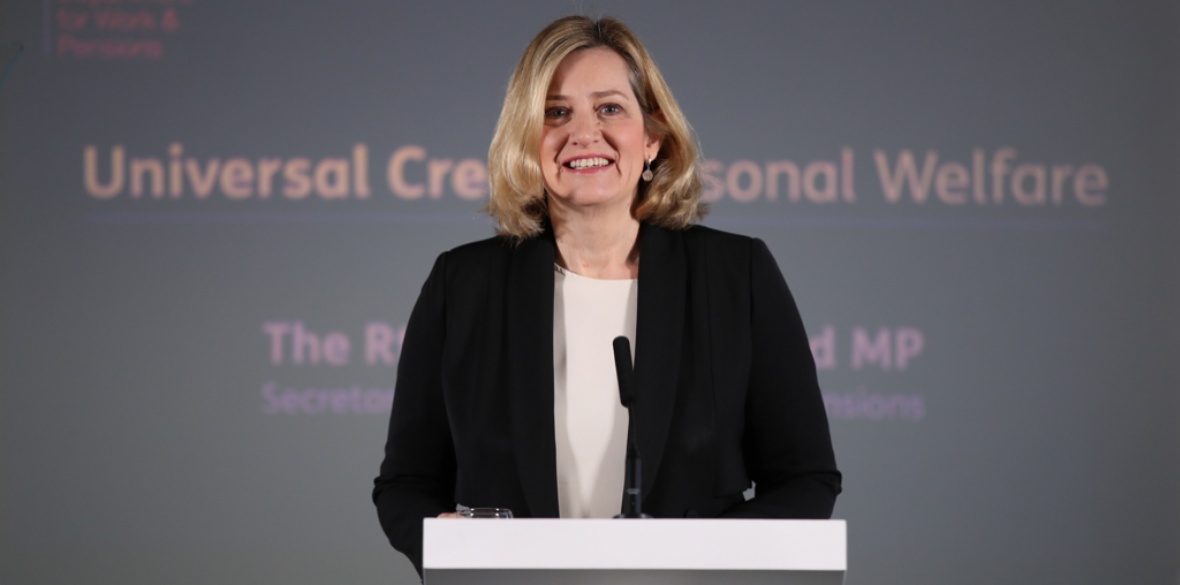TOMORROW’S demonstration against austerity will be part protest and part celebration. Four working mums have won a hugely significant case over the Tories’ universal credit scheme.
The top civil servants in the DWP — not all of them incidentally — and their minister Amber Rudd are on the back foot over this rare judgement in favour of working people.
Danielle Johnson, Claire Woods, Erin Barrett and Katie Stewart — along with the Child Poverty Action Group — have won a judicial review action against the government over the methods used to calculate payments. This is a welcome if narrow victory that turns on the rigidity of the income assessment system.
Even the National Audit Office, which scrutinises government spending, said the scheme was “driven by an ambitious timescale” and suffered from “weak management, ineffective control and poor governance.”
Hardly surprising considering it was the product of Iain Duncan Smith’s political skill set and Esther McVey’s human touch. When taxed over the estimate that three million claimants would be £1,800 a year poorer, she was in full austerity mode: “We made tough decisions and some people will be worse off.”
By definition claimants are people on low and unreliable incomes. And as the system is rolled out figures show that so far there are more than one million people affected.
Supposedly designed to make the benefit system simpler, universal credit — which bundles together income support, income-based jobseeker’s allowance, income-related employment and support allowance, housing benefit, child tax credit and working tax credit — into one payment has deepened the financial difficulties hard-pressed people find themselves in.
It is unreliable, capricious, poorly administered and beset by IT problems. It is costing vastly more than estimated.
In essence, it is devised as a mechanism for taking money out of the weekly budgets of working people.
Labour’s criticism that universal credit in its current form simply isn’t working, is causing greater poverty and anxiety wherever it is imposed is unanswerable.
Rudd has bowed to pressure from campaigners and Labour and is delaying its roll-out and scrapping the two-child cap on benefits to families with children born before 2017.
Labour has said it is “committed to a root-and-branch review of the social security system.”
It needs it. Aside from the 21st-century Poor Law style that the Tories have made their trademark, Britain’s benefit system is built around a decades-old system of pressure to reduce wages and, at the same time, cut public spending.
This approach is in the political DNA of the Conservative Party and is rooted, in the current era, in the Maastricht Treaty and embodied in the successive treaties which have shaped the European Union into an ever more perfect instrument for neoliberal policies.
New Labour introduced a couple of innovations which had the superficial appearance of reforms designed to make life easier for working people in the low-wage economy that has accompanied Britain’s transition from a manufacturing economy into a service-based appendage to the City of London.
Tax credits put a few bob extra in the pockets of workers whose employers who don’t pay the living wage. Like the direct payments to landlords that Rudd now wants to build into universal credit, this makes landlords, like skinflint employers, the real claimants.
And the financial cost of subsidising wages and rents is born by the collective taxpayer, including the low paid and claimants who pay the most unfair taxes of all, flat taxes like VAT, which fall with equal weight on all who pay them — from the poverty stricken at the end of their tether to the tax-efficient tycoon with their money in a tax haven.











